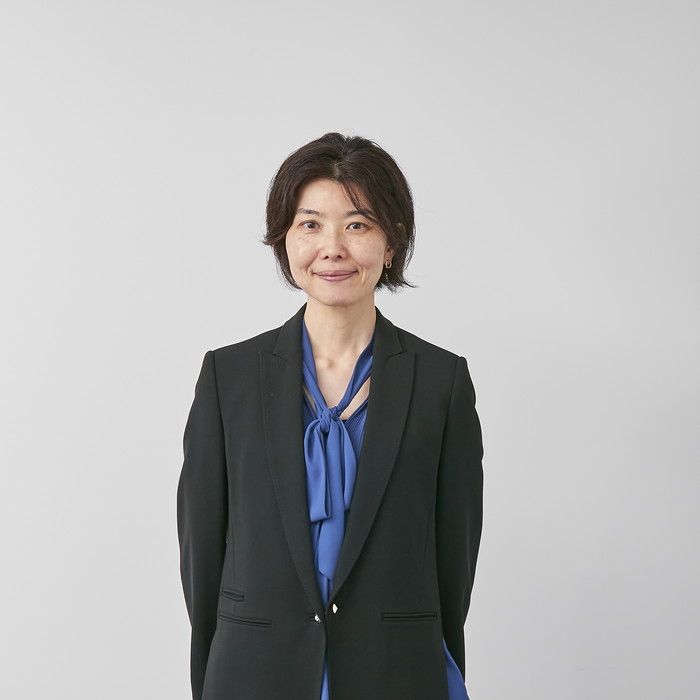
Research activities
Close-up
Sensitivity and intercultural understanding realized through nursing practice

Faculty of Global Nursing Graduate Graduate School of Global Nursing Science
Tomiko Toda Associate Professor
Research topic: Global health Cross-cultural nursing Cultural Sensitivity Foreign residents
"Intercultural understanding" begins with everyday observation
My current main research theme is "cross-cultural nursing," but it's not because I was good at English. When I was a student, I couldn't speak English, so I was able to imagine and understand the inconveniences and disadvantages that people with difficulty in Japanese face in Japan as if they were my own problems. I think that feeling is still with me today. Also, as a teacher, I have seen students enthusiastically thinking about their patients. Through these experiences, I began to think that "sensitivity" may be influenced by factors other than knowledge and skills.
On the other hand, I studied Arabic and Hebrew at a foreign language university, and in the process of learning, I had the opportunity to look at language objectively. When interacting with foreigners, we are sometimes conscious of the language barrier. However, it is not necessarily true that we can understand each other if we overcome the language barrier. Language is a tool, and other elements are necessary to understand each other. One of these is culture, and I was fascinated by its diversity and depth during my time at university. Later, when I interacted with foreign patients as a nurse in clinical practice, I felt uncomfortable because even though I was able to communicate with them, it was difficult to communicate with them on the same level as Japanese patients. For example, nurses sometimes tell patients who are at risk of falling, "Please press the nurse call button when you stand up," and watch them stand up and walk, but when I told the same thing to foreign patients, they complained, "Please don't treat me like a child."
It has also become clear that foreign patients find it difficult to follow the "unspoken rules" in Japanese hospitals because they are not written down. For example, when the curtains between the beds are closed, it is better not to talk to the patient next to you, eat your food as soon as it is served, or you have to clear the table yourself. Just as we live in our own cultures and have our own values, patients also have their own cultures and values. In order to understand people, I realized the importance of thinking about what cultures and values lie behind them while interacting with various patients. This was my encounter with a "different culture," and it can be said that my discomfort with English, my encounter with words, and my experience as a nurse all led me to my current research theme, "different culture sensitivity."
Understanding religion means understanding values and ways of life
When we hear about Islam, we tend to imagine various rules, such as no pork, no alcohol, fasting, etc., but I think that this is a little different from the original image of Islam. Because patients follow these rules, it is important for us nurses not to go against them, but I think it is difficult to understand patients with only this kind of information.
Previously, I conducted interviews and questionnaire surveys targeting Muslim patients and nurses. I found that Muslim patients want nurses to understand the rules and to know more about Islam. On the other hand, nurses want to know about Islam, but somehow feel uncomfortable asking, and hesitate to ask. For Japanese people, religion may be considered taboo, or they may have the image that it is something to look after when someone dies. However, Islam is a religion that is closely related to daily life from birth to death, and can be said to be a guide to how to live. Therefore, if nursing is a profession that supports people's daily lives, I think nurses need to understand not only the rules of Islam, but also the way Muslims live.
In class, I once asked students, "How would you like to die?" Many of them answered, "With my family watching over me..." Although the answer included spiritual peace, few students mentioned any religious aspects. International surveys also show that the percentage of Japanese people who have religious ties in their daily lives is low. This is related to the previous discussion of culture, but nursing education in Japan is based on the premise that nurses, patients, and situations are all "Japanese/Japanese". However, in recent years, medical facilities in Japan have begun to see a diverse range of patients, including Muslims, religiously and ethnically. Given this situation, I believe it is important to train nurses who can provide appropriate care based on a deep understanding of the values and lifestyles of people, regardless of their nationality or cultural background.
A world of mutual understanding awaits you just one step away
We tend to be timid in the face of the unknown. As the term "comfort zone" suggests, it may be comfortable to stay within the scope of what you know. However, as a medical professional, teacher, and researcher, I want to learn about the world I do not know and broaden my horizons. Everyone has the right to live a richer and happier life, and there are as many ways of living and happiness as there are people. I believe that nursing is a profession that contributes to this. However, the world we can know is limited, and even if we propose something to patients, we can only draw from our own world. Therefore, I want students who aim to become medical professionals to get out of this "comfort zone" and gain various experiences. The patients they will meet in the future are seniors in life with various backgrounds and experiences. To care for such people, we need to think about the lives they have led, be sensitive to their values and beliefs, strive to understand them, and have the tolerance to accept them.

When you are in Japan, you naturally take for granted that you can speak Japanese with people who were born and raised in Japan and understand each other with perfect harmony, and you don't feel inconvenienced. It takes courage and energy to step out of your comfort zone, and it doesn't always work out right from the start. However, that experience, including that process, will nourish your life and lead to the foundation for understanding people. In order to support the happiness of others, you first need to know how to make yourself happy. And the more options you have, the more paths to happiness and the more colorful your life will be. As a person, expanding your world a little, imagining what kind of world is ahead of you, and walking through life with the courage to take a step forward will lead to a deeper understanding of others, lead you to a new world, and bring color to your life. I would like students and everyone in general to know these things through my research.

Author
Tomiko Toda TODA Tomiko
Faculty of Global Nursing Graduate Graduate School of Global Nursing Science
Associate Professor
Research Field
Nursing, Health and Hygiene
Research Topics
Global Health Cross-cultural nursing Cultural Sensitivity Foreign residents


